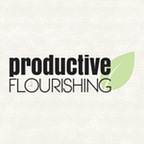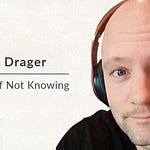In today’s episode, Jacquette Timmons and Charlie discuss how the ways we make and spend money are more based on our feelings and identities than on cold, hard logic. They also talk about how to pay attention to the data we’re getting as we make decisions about earning and spending. Jacquette Timmons is author of the book Financial Intimacy, and has also appeared as a guest on Oprah.com and CNN.
Key Takeaways:
[2:45] - Back in the summer, Jacquette had tried to launch a group coaching program with no success. After working through Charlie’s Epic Launch Playbook, she realized that thinking about the program didn’t bring her the same excitement and energy as working with her coaching clients.
[6:05] - The key piece to Jacquette making this discovery was the energy. Working on the group coaching program was draining her, and she realized that it was going to have an impact on how she was showing up to the project. She also realized that she could channel her efforts elsewhere to gain the same revenue she would’ve made from the group coaching project (by getting more one-on-one clients or doing more speaking gigs).
[7:30] - Your energy is important to how you might work towards earning something. It is important to evaluate how you feel about waking up to do the work. If it’s a negative feeling, maybe a different path is in store. You have to explore the small pocket of ways to make money that are also aligned with who you are, and what helps you thrive and makes you happy.
[11:10] - In her work and experience, Jacquette has noticed different trends when it comes to earning, between entrepreneurs and people who are employees for a larger entity. For entrepreneurs, it is often the case that their businesses are doing well, but their personal finances aren’t necessarily reflecting that. One way to approach finances in entrepreneurship is to figure out first what your business needs to be paying you to cover your expenses, set up savings, and support long-term wealth-building goals, rather than taking what’s leftover as what you pay yourself.
[14:25] - Another aspect to consider is your profit; your profit should be considered after it has paid you the salary it needs to pay you, rather than just what’s left over after operational expenses. Evaluating the finances of your business and your personal finances can be tough to do, but it is important to keep this in check in case you need to change something about your business plan.
[17:57] - If your business is not paying you, you essentially have a really expensive hobby, one that may actually also be eating away at your future. Income is largely the proxy you can use to determine what options you have for different circumstances in your life.
[21:05] - Our identity plays into the lens through which we analyze the situations we’re in, and how we navigate through them. We have to evaluate what our money and material goods mean to us and our identity. The things we buy are identity statements, and a lot of times these aren’t conscious decisions.
[24:17] - Many of our beliefs about money are at a subconscious level, and we don’t often spend as much time as we should exploring where identity markers come from. Some of them are ones that we’ve embraced as our own, and some, we have inherited. Our feelings about and reactions to certain situations can help us draw some identity lines. If you’re in a job or career, and you’re not inspired or challenged by the people you’re surrounded by, it might be time to find a different path, or surround yourself with different people.
[30:13] - It is also important to understand what your role in your work or life situation is. As your life shifts and changes, you also have to expand your role in these different situations. If you’re the one inspiring those around you, you also need to find a space where you’re inspired and challenged for growth as well.
[32:32] - This relates to money because if what you’re doing isn’t making you happy, you’re going to be spending your hard-earned money doing the things that make you happy to fill that hole. You may be making more money doing something that doesn’t fulfill you and spend it trying to make yourself happy, or you can find the things that fill you up, with the chance that you might make a bit less.
[35:37] - It is helpful to remember that we curate our identity for other people. If your marker for whether or not you should do something is based on what other people have curated, it may not be an accurate depiction. That’s where the internal markers come in - what is true for you will endure.
[39:41] - You have to be careful not to rationalize your actions too much if you’re stuck in a place you don’t really want to be in. If you are in that position, where you need to do something unfavorable for a certain amount of time - maybe taking a part time job or stepping back from something - you have to be intentional about when you are going to resume your original work. If you leave this up to chance, you may never return to your original project.
[46:20] - Set real timelines for yourself, whether it is an amount of time, or maybe working a job until you save a certain amount of money. Whatever it is, have that tripwire and hold yourself accountable; otherwise, later could become never.
[47:22] - When we think about money, many of us don’t think about our identity or feelings. One of the biggest challenges is that we tend to make it about the intelligence part, rather than the heart, which can provide guidance on how to move forward. Everything around the numbers or money has a lot to do with your circumstances, choices, beliefs, expectations, and failures and successes. The better we get about not feeling bad about where we may have fallen short, the more we will be able to use money as a communication tool that allows us to speak to ourselves and other people in a different way.
[51:10] - Jacquette’s invitation/challenge to listeners is to go back and pull the last three months of banking and credit card statements (“Roll Call”), and indicate on every transaction whether it was something that made you a happy, mandatory, or maybe something you regret now. As you tally it up, you will get a great amount of data about what you’re doing with your money, and also where you might want to make some changes so you’re getting more from your money for your life.
Mentioned in This Episode:












